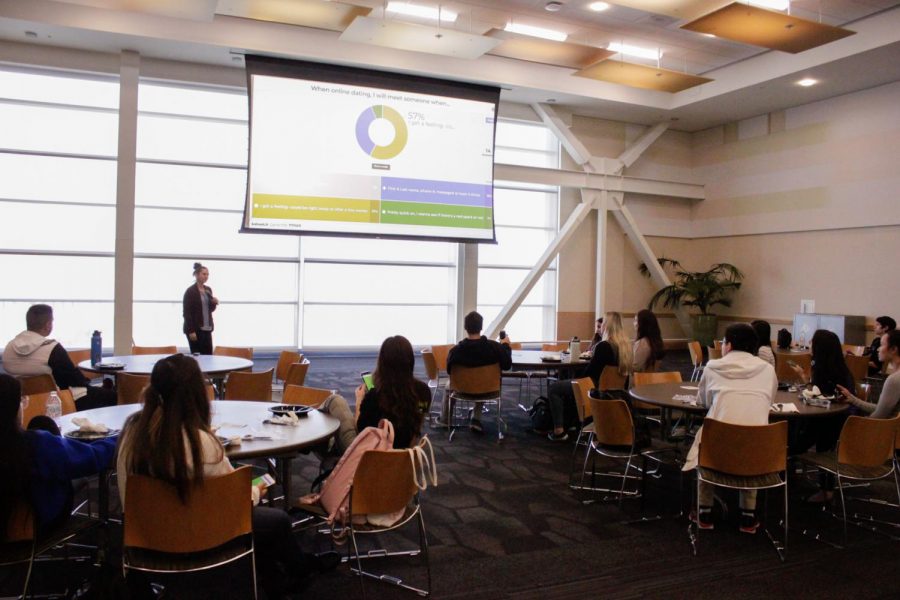Workshop informs students of unhealthy digital relationship habits and abuse
February 22, 2020
Student Health & Counseling Services held their Healthy Tech Relationships workshop which informed students on the nuances of digital relationships.
“The plan is…to touch on people that are thinking about using online dating for a relationship and just some things to think about with that,” said Christa Wencl, the sexual violence advocate & educator who hosted the Feb. 11 workshop.
Around 15 students came to the workshop and sat in small groups for the discussion portions.
While technology has brought couples closer, it can also be harmful to relationships. “Entire fights could start over a message that was misinterpreted,” said Wencl. “Constant contact can be nice and it can also be stressful.”
Long distance relationships benefit from digital relationships, as people may meet others they may not normally run into in real life. Digital relationships also provide immediate quality time for couples.
Dating apps and social media can also delay moving on from past relationships, as ex-partners are easily accessible through these online resources.
People nowadays are more uneasy about fully committing to relationships because they fear that they are settling, said Wencl. “There are infinite options, so a lot of people talk about you know, ‘I did online dating, but I can’t help but wonder, is there somebody else out there? Am I just settling? Are there more options?’”
Wencl mentioned that students may be confused about what relationships look like in reality, since people have a tendency to exclusively post happy moments of their relationship on social media.
For students looking to start a digital relationship, Wencl advises to consider different apps and websites, as each one requires their users to provide different information and vary in costs. She also told students to know what they are looking for — casual versus a serious relationship, deal-breakers and what is important to them.
“It really depends on what you’re seeking and what you want to invest into,” said Wencl.
Sex also is a part of digital space and relationships. 54 percent of people have sent nudes or scantily clad photos to their partners, according to one of the statistics on Wencl’s slides. That number goes up to 78.1 percent for 18 to 24-year-olds.
“Affirmation consent still lives on. If I want a [nude] photo, I should be asking for it or somebody should be asking if I want it and I should only receive it if I say ‘Yes please, send that,’” said Wencl.
She also cautioned students to be aware that some partners aren’t responsible with technology, sometimes blackmailing or uploading revenge porn in the case of a bad breakup.
Unhealthy digital relationships consist of digital abuse. According to Wencl, it’s digital abuse when a partner is coercive; when someone pressures or harasses you to do things that you are not comfortable doing, including sexual acts or favors, such as pressuring you to send nudes.
It’s abuse when your partner is controlling and actively degrades you. Abusive partners enforce emotional abuse, isolate, intimidate, economically abuse and control technology use over their partner, said Wencl.
Towards the end of the workshop, Wencl had students participate in a round of Kahoot, an anonymous quiz and poll site. This round of Kahoot asked students a couple questions about their digital relationship habits.
60 percent of students answered that their tech boundaries include connecting sometimes via tech, but equally physically in person.
In a different question, 57 percent of students answered that when online dating, they will meet someone when they get a feeling — could be right away or after a few weeks.
“I hope that they took away…the opportunity to check in with themselves about their digital relationship boundaries, as well as their values in a digital relationship,” said Wencl after the workshop ended.
For further information, check out https://www.csusm.edu/shcs/advocate/index.html.







